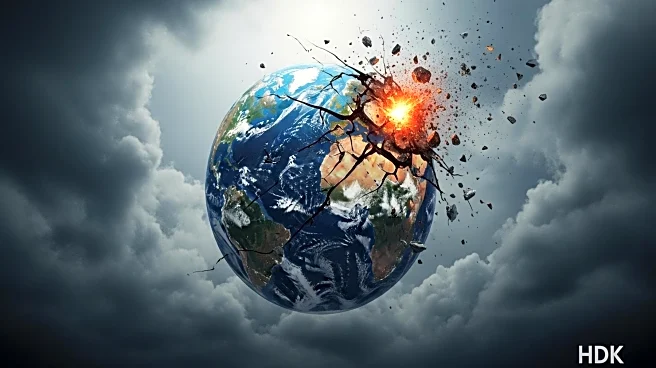What's Happening?
The Houthi leadership in Yemen has confirmed the death of Prime Minister Ahmed Ghaleb al-Rahwi and several ministers following an Israeli airstrike in Sanaa. The strike occurred during a government meeting and was aimed at eliminating top Houthi commanders. The Houthi presidency mourned the loss of national leaders and vowed retaliation, promising to continue supporting Gaza and building their forces. Despite the casualties, the government insists on maintaining its operations and services.
Why It's Important?
This development underscores the volatile nature of the conflict between Israel and the Houthi rebels, with potential repercussions for regional security and international relations. The death of key figures in the Houthi leadership could lead to shifts in power dynamics and affect the group's ability to govern and conduct military operations. The promise of retaliation suggests further military engagements, which could escalate tensions and impact civilian populations.
What's Next?
The Houthis have already launched a missile toward Israel, intercepted before reaching Israeli territory, indicating their intent to retaliate. Israel is on alert for possible further attacks, and the situation may lead to increased military readiness and diplomatic efforts to prevent escalation. The international community may become involved in seeking solutions to the conflict and addressing humanitarian concerns.
Beyond the Headlines
The airstrike and its aftermath could influence regional alliances and the geopolitical landscape in the Middle East. The involvement of external powers in Yemen's conflict raises questions about sovereignty and the ethical implications of military interventions. The situation may also affect global perceptions of the conflict and influence international policy decisions.









